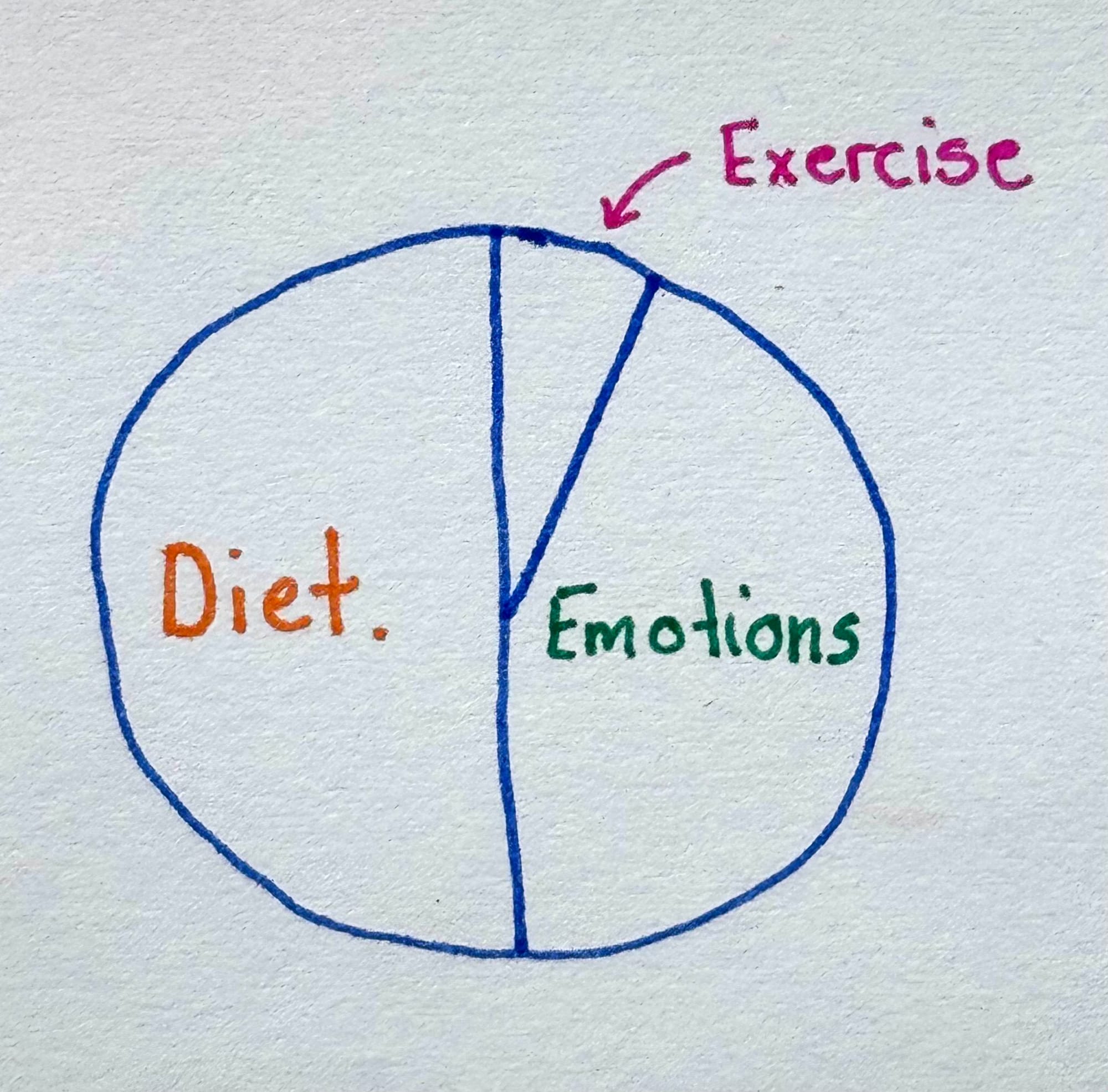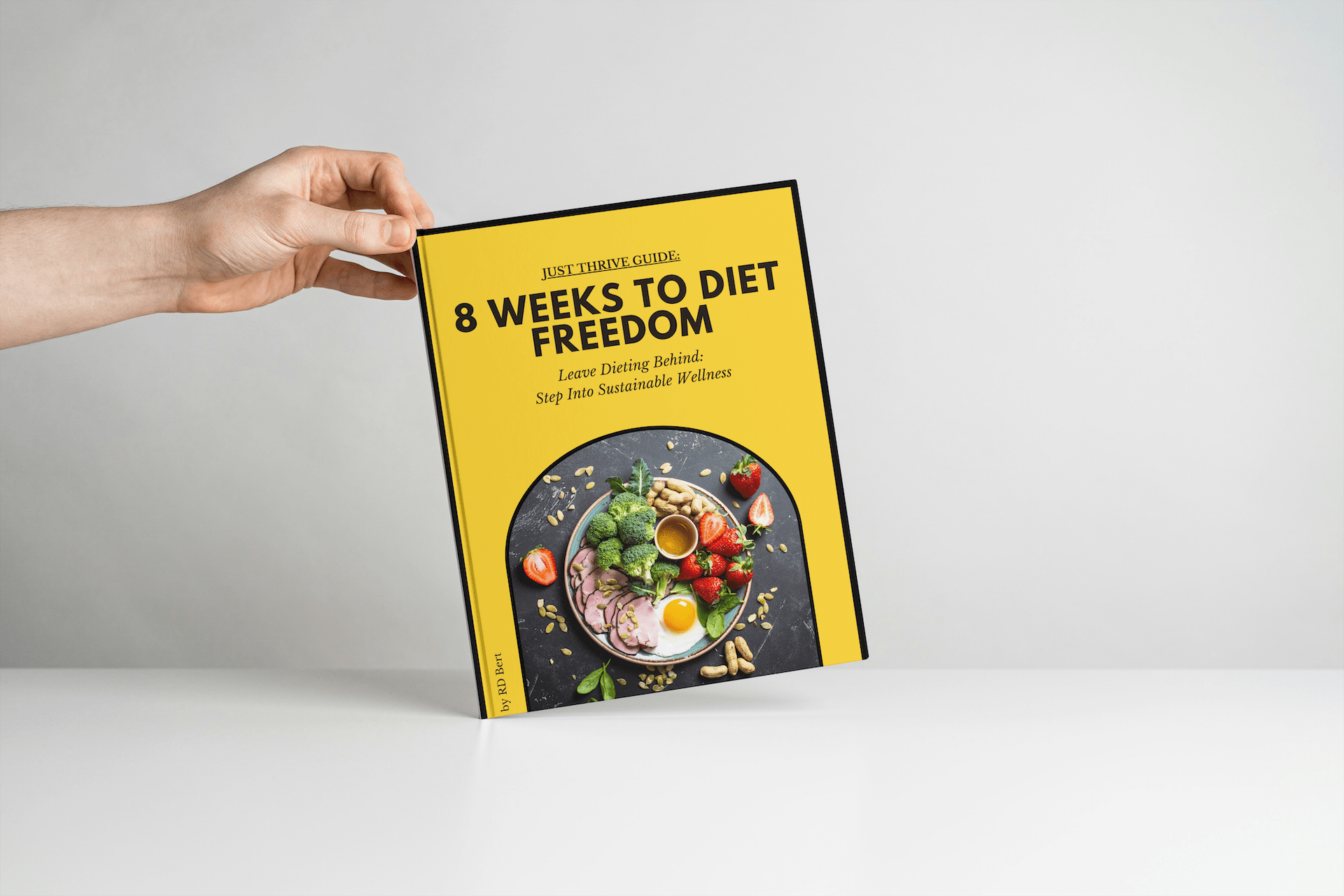Why Your Diet is FAILING
Picture this: you've started yet another diet, feeling motivated and ready to conquer your weight loss goals. For the first few days, you're on top of the world, diligently sticking to your meal plan.
But slowly, the initial excitement wears off. Cravings kick in, your willpower dwindles, and before you know it, you've abandoned the diet altogether.
Sound familiar? If so, you're not alone. Many people struggle with sticking to diets.
The problem isn't necessarily the diet itself but rather where we focus our efforts.
The Breakdown
To understand why diets often fail, let's break it down into numbers:

- Diet = 50% of our effort.
- Yet we spend 100% of our mental energy on diets.
- Exercise = 10%, emphasizing consistency.
- The remaining 40%? Our emotional well-being, which drives our eating habits.
Diets: The 50% Effort Misconception
When we start a diet, we tend to put all our mental energy into it. We meticulously plan our meals, count every calorie, and obsess over the scale.
While dedication is crucial, it's not the whole picture.
Diets alone should only require about 50% of our effort. This includes making healthier food choices, controlling portion sizes, and ensuring balanced nutrition.
Exercise: The Consistent 10%
Exercise plays a vital role in weight management and overall health, but it doesn't need to dominate your life.
A consistent 10% effort in physical activity can yield significant benefits.
Think of it as incorporating regular, manageable routines like daily walks, short workouts, or taking the stairs instead of the elevator.
Consistency is key, not intensity.
The Missing Piece: Emotional Well-Being (40%)
Here's where many of us go wrong.
We often overlook the significant impact our emotional well-being has on our eating habits.
Emotional awareness and management are crucial for lasting change. When we experience stress, boredom, sadness, or even happiness, we might turn to food for comfort, leading to unhealthy eating patterns.
Emotional eating can sabotage even the best diet plans.
It's not about willpower but understanding the root causes of our eating habits. By dedicating 40% of our effort to emotional well-being, we can address these underlying issues and create a healthier relationship with food.
Steps for Lasting Change
- Balance Your Efforts: Shift your focus to include emotional well-being. Allocate your mental energy appropriately: 50% on diet, 10% on consistent exercise, and 40% on emotional health.
- Practice Emotional Awareness: Start a journal to track your emotions and how they relate to your eating habits. Identify patterns and triggers that lead to emotional eating.
- Develop Healthy Coping Mechanisms: Instead of reaching for food when emotions run high, find alternative ways to cope. This could be through hobbies, talking to a friend, or practicing relaxation techniques like deep breathing or meditation.
- Seek Professional Support: If emotional eating feels overwhelming, consider talking to a therapist or counselor. They can help you navigate your emotions and develop healthier strategies.
Reflection Questions
- How do your emotions affect your eating habits?
- Are you focusing too much energy on dieting and not enough on emotional well-being?
- What are some healthy coping mechanisms you can use when emotions run high?
- How can you incorporate consistent, manageable exercise into your daily routine?
Understanding that emotional awareness is key can transform your approach to weight loss and overall health.
By balancing your efforts and addressing the emotional components of eating, you can achieve lasting change and a healthier relationship with food.
Until next time.
RD Bertus Coetzer
Don't Let the Rest of June Slip Away—Take Control Now!

2/3 the month is already gone, and with it, countless moments spent chasing dopamine through unproductive habits.
Why wait? Don’t let the rest of the month be wasted on fleeting dopamine hits. Instead, invest in sustainable wellness and a healthier lifestyle.
Click here to start your journey to diet freedom today!